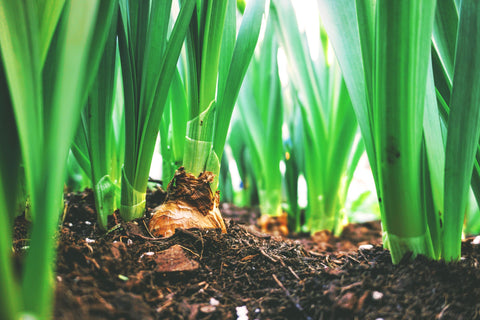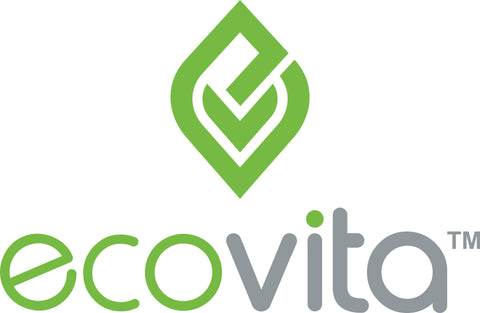Biodegradable Does Not Meet Eco-Friendly Standards
Misconception Between Compostable and Biodegradable Products
 If you're just starting out on your eco-friendly journey, the word "biodegradable" probably sounds pretty good. Even if you've been on the path for a while, you may still be unaware of the fact that this one word holds many secrets. In recent years, "biodegradable" has been used by many companies to signify that they're on board with the green movement but, unfortunately, it's not as easy as it seems. So why is "biodegradable" such a notorious word right now? Many confuse the term with its similar partners, “eco-friendly” or "compostable." But there are slight differences between these terms which then create major changes in the way that each labeled product is processed and received by the earth. Let’s discuss those differences and how you can choose the right products to use.
If you're just starting out on your eco-friendly journey, the word "biodegradable" probably sounds pretty good. Even if you've been on the path for a while, you may still be unaware of the fact that this one word holds many secrets. In recent years, "biodegradable" has been used by many companies to signify that they're on board with the green movement but, unfortunately, it's not as easy as it seems. So why is "biodegradable" such a notorious word right now? Many confuse the term with its similar partners, “eco-friendly” or "compostable." But there are slight differences between these terms which then create major changes in the way that each labeled product is processed and received by the earth. Let’s discuss those differences and how you can choose the right products to use.
Why Biodegradable Does Not Mean Eco-Friendly or Compostable
The dictionary defines "biodegradable" as "capable of being decomposed by bacteria or other living organisms." Technically, disposable plastics can biodegrade into pieces, but it can take hundreds of years to do so. That definition is very misleading as there is one big caveat to biodegradable utensils, plates and bowls, and biodegradable products in general - most of them do degrade but they never 'integrate' with the rest of the soil or organic material around them. That's to say: while the product might degrade into pieces smaller than your naked eye can see, they're still artificial pieces floating or sitting in our environment.
Anything that is animal-based, plant-based or natural mineral-based will biodegrade into mostly harmless compounds. That 'mostly' means that there will sometimes, or oftentimes, be parts of the product that will cause harm to the environment if accumulated in high enough amounts. This is part of the reason why the state of California, in 2013, banned the sale of products labeled as biodegradable in their state until the American Society for Testing and Materials (ASTM) updates their standards for what is allowed to be labeled biodegradable. California even goes so far as to financially penalize companies that don't follow this rule in their state. Other states and cities have followed suit, with Maryland prohibiting the sale of plastic products labeled as biodegradable, degradable or decomposable unless it meets certain standards. The cities of Seattle and Houston have implemented rules on 'biodegradable' bags and require residents to use compostable ones instead.
How is Compostable Better?
Compostable can be defined as a mixture of decayed or decaying organic matter used to fertilize the soil. Already, you might notice that there is a big difference between the definition of biodegradable and compostable. Compostable material will always decay into non-toxic natural material that gives nutrients back the soil and improves its quality. Compostable plastics also usually degrade faster than 'biodegradable' products do, with the proper conditions. For example, our certified compostable forks, under appropriate conditions, will turn into nutrient-rich compost in 2 - 4 months. In addition, eco-friendly products like 100% compostable flatware (made of crystalized polylactic acid or CPLA) is reported to take 65% less energy to make and produces 68% fewer greenhouse gases than conventional plastics. Thus, you start out with a winning environmental advantage when compared to disposable plastics even before disposal.
There are two types of composting and it just has to do with how efficient the process is at breaking down materials. Commercial or industrial composting allows meat, bones, dairy and larger products such as branches or cardboard to be composted, as the facilities are equipped with grinders and machinery that will break these down. While compostable material may slowly breakdown in backyard composters, they are usually not as efficient or simulate the same composting conditions. Because most certified compostable products have been tested in an industrial composting facility, it isn't recommended for those materials like compostable forks, spoons and knives to be added there.
Ecovita Strives for Higher Standards
We've made sure to provide products that are not just eco-friendly but go one step further and are 100% compostable. Ecovita products are BPI® Compostable Certified, which means that our products have been independently tested and verified to be truly 100% compostable. This makes the sale of our products compliant with any regulations against 'biodegradable' labels in any state and safer for the environment at the same time.
As truly compostable cutlery or tableware, Ecovita products are certified for industrial composting and will compost in a few months not years. Unlike other biodegradable forks or plates or cups, that may use some forms of plant-based plastic, our products are made from corn or sugarcane byproducts that make them 100% compostable plastic products. This process ensures that, while our products may be disposable and meant for a short life span, they're not going to be negatively impacting the earth once they're done being used. In fact, they are designed to have a positive effect on the soil by becoming nutrient-rich compost.
 Our company is committed to creating products that are not only elegantly durable and convenient for your events and gatherings but will also have you feeling good about using them. We know that it can be confusing sometimes with all the different labels on eco-friendly products, so we wanted to make the difference between biodegradable and compostable clear. While all certified compostable products are biodegradable, not all biodegradable products are compostable. Because of this problem, some environmentalists recommend looking for eco-friendly products that are certified compostable (e.g. BPI or TUV) and meet or exceed ASTM (American) or EN (European) standards. Fortunately, you can be confident that Ecovita has got you covered, with our BPI certified compostable utensils which your family, friends and colleagues can enjoy.
Our company is committed to creating products that are not only elegantly durable and convenient for your events and gatherings but will also have you feeling good about using them. We know that it can be confusing sometimes with all the different labels on eco-friendly products, so we wanted to make the difference between biodegradable and compostable clear. While all certified compostable products are biodegradable, not all biodegradable products are compostable. Because of this problem, some environmentalists recommend looking for eco-friendly products that are certified compostable (e.g. BPI or TUV) and meet or exceed ASTM (American) or EN (European) standards. Fortunately, you can be confident that Ecovita has got you covered, with our BPI certified compostable utensils which your family, friends and colleagues can enjoy.
New Customers SAVE 10% on their first Ecovita order!
Use Promo Code NEW10%OFF at Checkout. Available in USA only.
Sources:
Royte, Elizabeth; Smithsonian Magazine, August 2006
https://www.fpintl.com/california-law.aspx
https://www.plasticstoday.com/content/california-sues-stop-greenwashing-biodegradable-vs-compostable-battle-rages-on/86245597316668
http://leginfo.legislature.ca.gov/faces/billNavClient.xhtml?bill_id=201120120SB567

